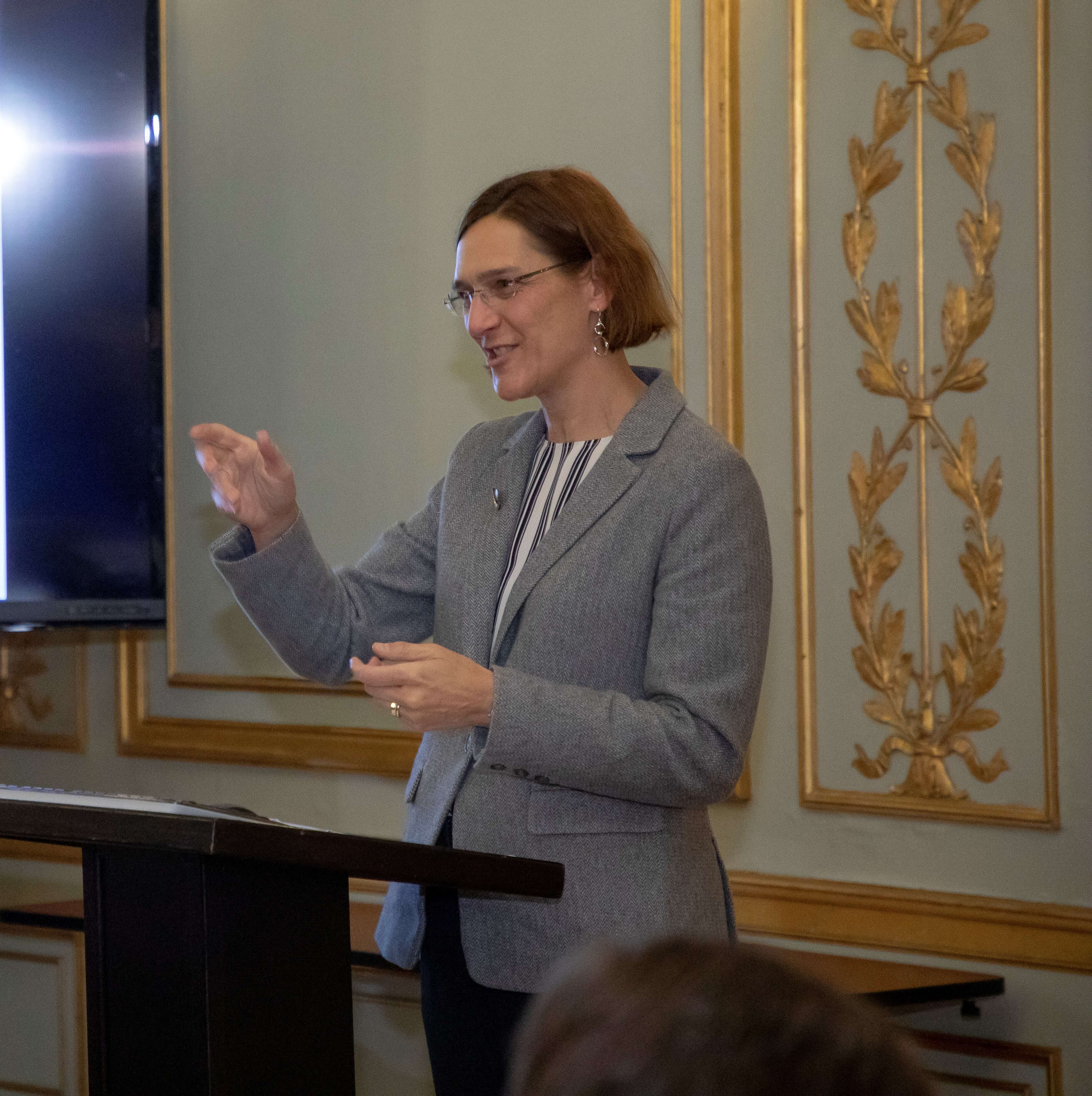Kristin Bluemel, professor of English and the Wayne D. McMurray Endowed Chair in the Humanities, has won a position as Leverhulme Visiting Professor at Newcastle University in the city of Newcastle upon Tyne in northern England. The seven-month professorship will begin in January 2022. The grant award goes to Newcastle University and is funded by the Leverhulme Trust, a foundation that supports humanities, science, and social science research in the U.K. Bluemel will go to Newcastle University to work with its School of English Literature, Language and Linguistics on interdisciplinary projects on rural modernity, children’s literature, and book illustration. Newcastle University has one of the country’s top programs in children’s literature and is already the nation’s leader in rural studies through its Centre for Rural Economy and National Innovation Centre for Rural Enterprise.
Bluemel’s Leverhulme projects are built around Thomas Bewick, an 18th century Newcastle wood engraver and naturalist whose innovative illustration techniques transformed print culture in Britain and Europe. In addition to delivering a series of Leverhulme Lectures on Bewick and the women wood engravers and illustrators who extended his legacy into the 20th century, Bluemel will undertake public impact and service learning projects. She hopes to initiate youth programming at Bewick’s homestead in the Tyne Valley, Cherryburn, now run by the National Trust, and lead Newcastle undergraduate and graduate students into Bewick’s many city archives as researchers and interns. She will prioritize facilitation of partnerships and networks among rural researchers at Newcastle in order to transform a national discourse about rural Britain that currently fragments along disciplinary lines. She also hopes to complete a scholarly book titled “An Ideal Modernity: Rural Britain, Women Artists, and the Twentieth-Century Wood Engraving Revival.”
Bluemel says that her acceptance of the Leverhulme Visiting Professorship and her future efforts to achieve its goals have been made possible through the support of many people at Monmouth University, including the Office of the Provost, Office of the Dean of the Humanities and Social Sciences, the English Department, and the Faculty Association of Monmouth University.


